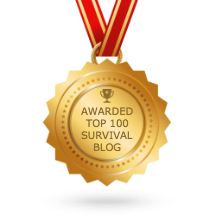

Free Camping , sometimes called Bookdocking, is a great way to go. You can easily find places all over that allow it. Great way to save money and travel.
http://www.boondocking.org/ has a database that you can search to find some free camping sites.
The Common Sense Approach To Boondocking Safety
I
truly believe that everything in life, even sitting in a chair and
breathing, involves some element of risk. Each of us decides for
ourselves every day what risks we are willing to take. If your risk
tolerance is exceptionally low, you're not likely to be travelling at
all or reading this website.
When it comes to quieting our fears, nothing's more effective than knowledge and experience.
From 8 years of boondocking experience, here are my common sense conclusions, insights and boondocking safety advice.

- When it comes to robberies, statistically, I am much more likely to be a victim in my house than in my RV.
- Setting up camp down a dirt road on public land makes me no more a
target for a thief than anyone who builds a home or cottage on a country
road in a remote area
- My RV is much less appealing to a thief than a permanent residence
in that I don't have the same amount of valuable removable furniture or
fixtures that can easily be converted to cash.
- I'm often only camped in one location for a day or two...not enough
time for a thief to scope the place out and get to know my routines.
- Although the majority of RVers are honest nice people, even if we're
camped in a "secured" campground or an LTVA area with other RVers all
around us it doesn't mean there isn't a thief amongst us or that we're
safe from a break-in or robbery
- I admit that, like many people, at home, I don't know some of my
closest neighbors and I have very little time or interest in seeing who
comes in and out of their yard. Most RVers will agree that when we're
traveling we're much more likely to get to know and keep an eye on our
neighbor's property than when we're at home.
- In most boondocking areas, the common courtesy is to leave space, a
few hundred yards minimum between campers. In campgrounds, where units
are closer, if someone (a stranger) is walking towards or around the
immediate area of your unit, it may not be as obvious or noticeable.
- We use common sense when selecting a place to stop. When it comes to
boondocking safety we trust our intuition and drive on if the
environment doesn't "feel" safe.
- The further from civilization, the more safe it feels to be camped where we're totally alone.

- There's safety in numbers. This holds true for boondocking safety.
Especially when we're closer to urban areas, we want others, RVers,
truckers etc. within view.
- Most thieves are lazy. That's why the majority of RV break-ins occur
within easy access of the cities where most thieves hang out. We avoid
boondocking when we're within a short drive of the biggest cities.
- Most thieves don't want to deal with any type of struggle so the
easiest time to steal our possessions is when we're not in the RV. As
with any parked vehicle, we don't leave cash in the RV and keep
valuables out of sight.
- Because we're inside our motorhome at night, our RV is much more
likely to be a target in the daytime or evening while we 're parked for
shopping, dining out, or going to a show in any urban location than when
we're camped in an out-of-the way boondocking site.
- In parking lots, truck stops or road side areas, don't look for the
darkest concealed corner. Instead park in the light, and use black-out
curtains or eye-wear that block the light while you sleep.
- No matter where you are parked, if trouble does come to find you, driving away your vehicle can be your best defence.
- Park so that you can leave by driving forward. If you need to leave
in a hurry, you don't want to have to back up, or do more manoevering
than necessary.


- Keep your vehicle in the best possible operating condition.
- Believe it or not, the only boondocking safety concern isn't
burglers. No matter where you're camped, in case of a medical emergency,
be sure you have enough fuel to make it to the nearest hospital or all
night gas station in the middle of the night.
- Don't be paranoid. Just cautious.
- When you're in a community of RVs, even in a gated pay campground,
make a point of getting acquainted with your neighbors before you leave
your RV unattended for the day.
- In small towns, if there's no signage to the contrary, ask at the
grocery store or gas station or even ask the local police about using
the town park or a parking lot to "spend the night". If you get a
positive response, you'll have the added security of them knowing you're
there and watching out for you.
- Always be attentive to your surroundings.
Marianne Edwards is the author of the Frugal Shunpiker's Guides to the Southwest. She has been boondocking
safely for more than 8 years. Learn how to find great boondocking locations on her website
http://www.frugal-rv-travel.com












